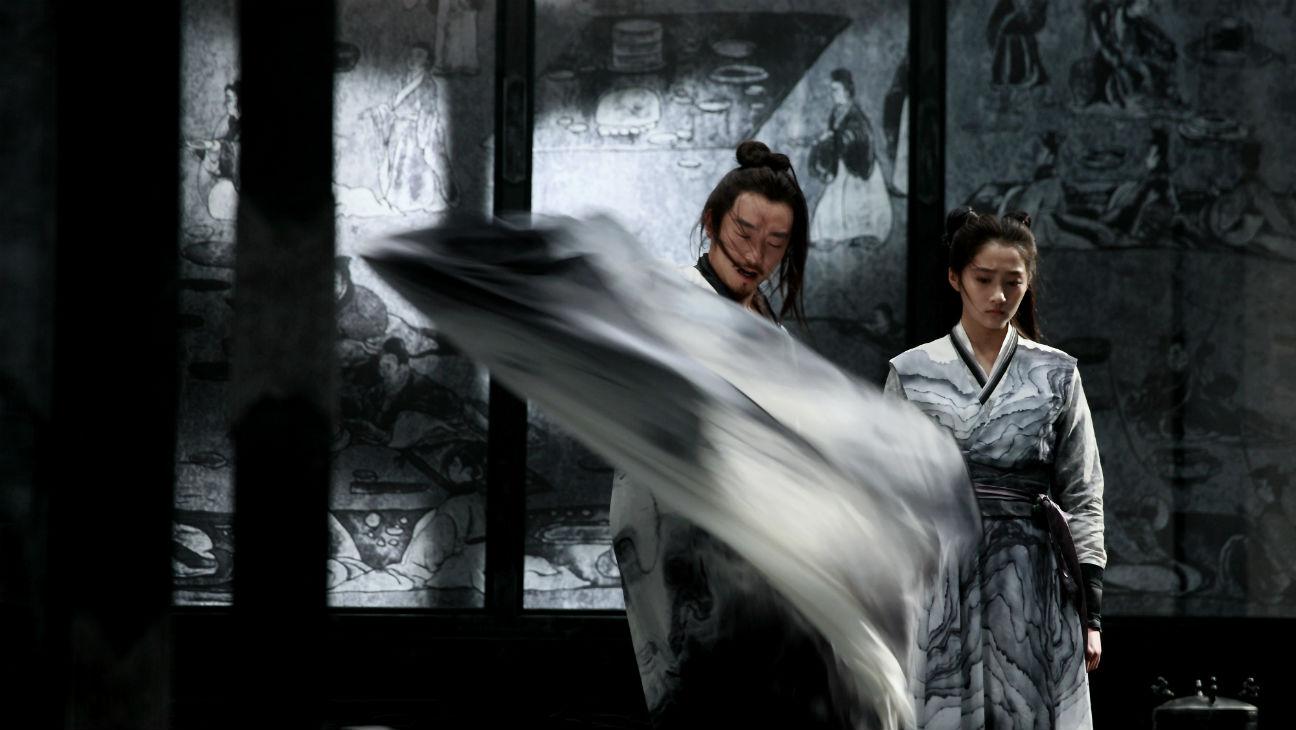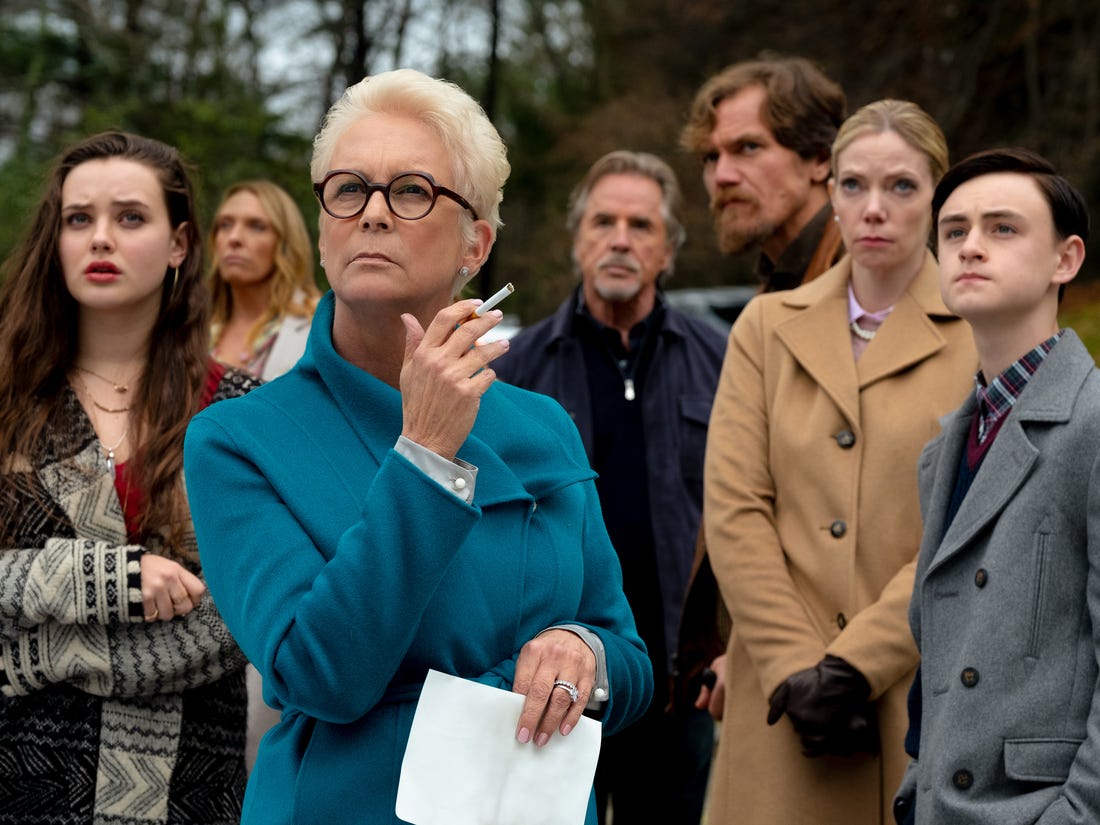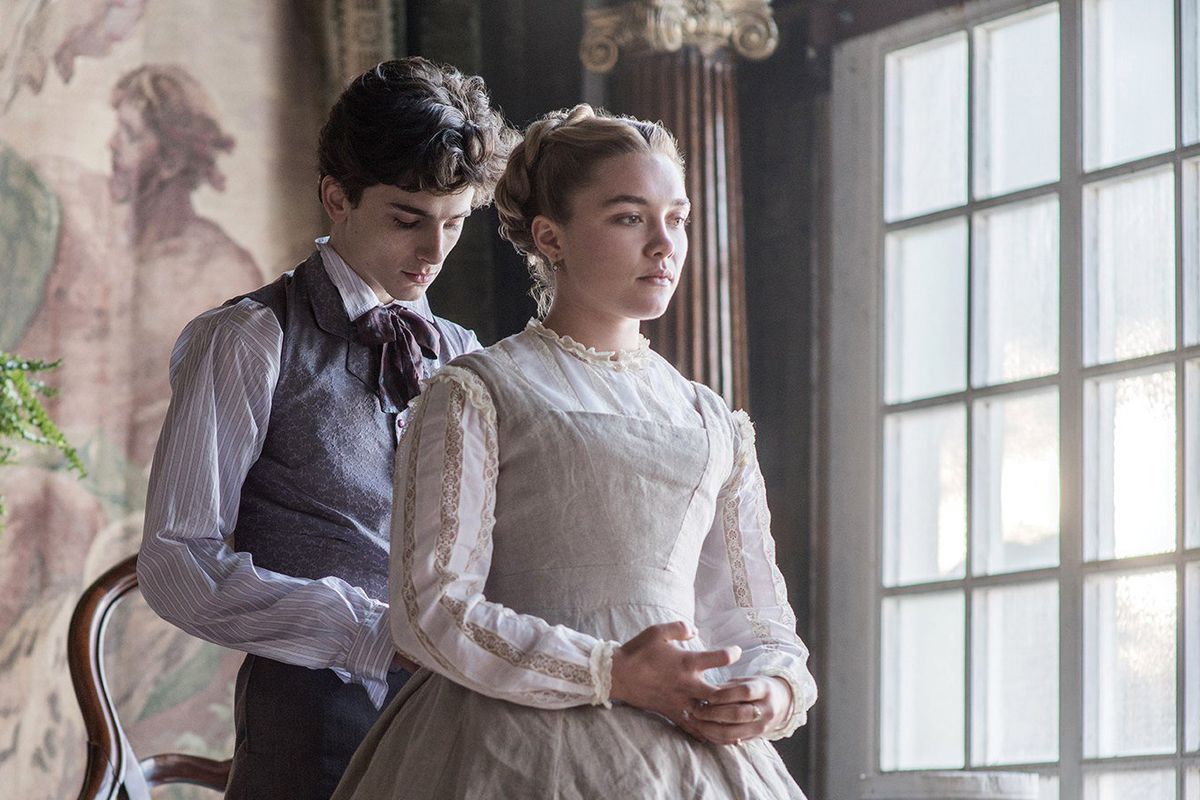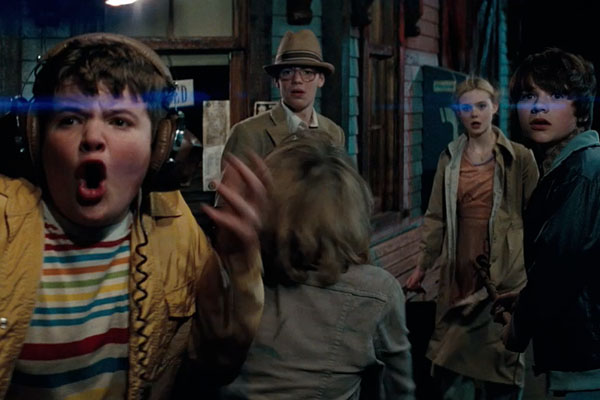6. Shadow (2019) – Historical Epic

Historical epics of old have waned by the day. Once a heavyweight come Oscar season, epics before the 20th century have become continually dormant as time passes on, even with the success of Gladiator. One of the men at the forefront of breathing life into the genre is Yimou Zhang, who has been making notable epics for pretty much twenty years and whose most recent effort, Shadow, is a great example of why there is still value in the subgenre.
His wuxia films take the action epics of old and exponentially advance them. They are much more intricate, much better choreographed than the sloppy set-pieces of something like Spartacus, and really capitalize on the unique potential of battles both large and small. The design is also a lot more sensationalistic, which is no doubt a complement when compared to older epics that were massive in scope but plain in design.
Yet, Shadow is still unmistakable as an epic, specifically with its cast of characters. The pastiche of characters all with distinct motives and allegiances, makes it feel somewhat Shakespearean. Sure, the dialogue may not be as strong, but it is one of the few modern films that cares about every single character with a line and wants to develop them to the fullest extent possible. The abridged length of Shadow makes it much more accessible, but it does not detract from the undeniable scope and ambition of the drama.
7. Knives Out (2019) – Whodunnit

I doubt few people would call Knives Out a perfect film. However, what it may be is the prime example of how to bring back a dead genre. It shows the promise intrinsic in the whodunnit plot but also addresses its main un-doings in a way that feels somewhat correctional.
Knives Out does not get overly smart. It is wonderfully content in letting its cast of stars run wild as comedic warriors all over a hectic plot. It is, after all, what made films such as Clue, so beloved. At the same time, Johnson goes out of his way to fool the audience into already knowing who the murderer is early on in the film, allowing them to breath and focus on other mystery elements that get lost in the shuffle even in some of the genre’s highlights. It also heavily deviates in terms of subtext. While older whodunnits had light messaging on the upper class fighting within itself, Knives Out is bursting with political allusions and class commentary that makes it more than just a fun romp at the movies, but a timely piece of fiction as well.
8. Prisoners (2013) – Noir

Noir has always been challenging for critics to define, but the traits that made the films identified as noir in the 40s come back rejuvenated in Villeneuve’s crime thriller. Noir is well, a set of stories predominantly comprised of crime. But not regular mafia crimes. Personal crimes. Evil actions that lower everyone who gets involved into a shroud of evil not easily escaped from.
At the center is the Private Loki. While usually calm, the confusion he faces and initial inability to solve the crime at hand brings out unbridled range from him. Child abduction is dark by itself, but Prisoners’s sense of helplessness in the face of the crime mixed with the suicides and pledges against God involved make for a noir entry far darker than the most sinister films of its golden age.
Noir is also a genre that gets its identity from moral complexities, unmistakably represented here by Jackman’s Keller Dover. His own search for justice and answers is intensely uncomfortable to watch, mainly because Villeneuve wants people to feel conflicted. Jackman can be seen as cruel or justified, but no matter the stance one takes it is challenging to not understand how other view his sense of morality. Mix that in with genre staples such as the embittered dialogue and the tragic ending, and it is the miserable and rewarding experience so many of the genre’s forefathers looked to create.
9. Little Women (2019) – Period Piece

Maybe even more rare than the historical epic, period pieces are extremely unpopular. The days of chivalry and dances vying for Oscars is over, but that did not prevent Greta Gerwig from putting her all into this inspiring adaptation.
Little Women is detailed from beginning to end. Its gowns, its manors. Everything that used to matter still matters here, which includes the warm centers and tales of suppressed love that can be found in films such as Howard’s End, or Remains of the Day. What really helps Little Women work as a contemporary piece, though, is how it deviates from the days of old. It moves at a spirited pace much livelier and more energetic than even older iterations of Alcott’s material. The time jumps make for an interesting contrast in the life of Jo, whose journey to fulfillment and liberation comes off as endlessly more intelligent than older attempts. She is in many ways a symbol of the fans who love period pieces so much. Tired of its shortcomings and restrictions but still in love with the honor and beauty present within.
10. Super 8 (2011) – Child Adventure Film, For Children

Kids are well represented in films these days, like in It or Stranger Things, but rarely does their inclusion appeal to younger audiences. It is an overwhelming challenge for children to find compelling adventures that allows them to see themselves on screen, without overly dark tones or inappropriate language. Then JJ Abrams comes in.
Super 8 is a film run by kids made for kids. It leaves the viewer guessing, it is a work of escapism with kids functioning essentially as detectives and has plenty of moments of awe to be taken aback by. That comes from the film’s sci-fi elements, a tribute to its producer Steven Spielberg. They bring in the wondrous sci-fi/fantasy interventions of E.T. and The Goonies, while retaining its own identity and not leaning too heavily in comedy that would make the film age poorly. Super 8 is able to bring to life the dreams of kids without sacrificing the innocence that makes childhood so special.